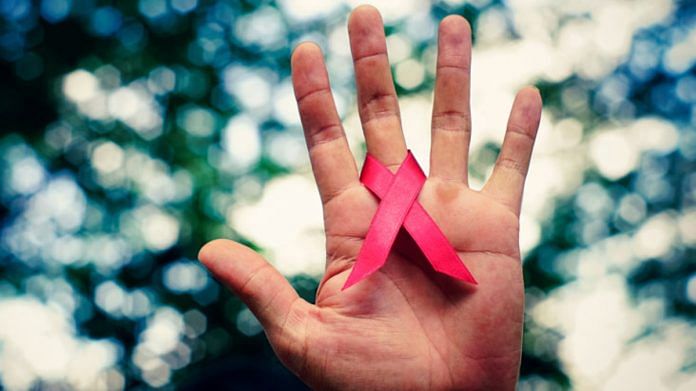This World AIDS Day, we will remember those we have lost. We will also recognize how far we have come over the four decades of the HIV epidemic. What was once unimaginable is now a reality: that anti-retroviral treatment (ART) can suppress HIV so that onward transmission is eliminated. Further funding is necessary to sustain and accelerate this progress. But we must also ask: What can be done to address how unevenly this progress is felt?
The comparatively poor HIV outcomes of adolescents living with HIV (ALHIV) show that they are being left behind. Unlike in previous decades, this can no longer be explained only by their inferior access to the best clinical treatments. Access to effective ART has improved significantly, and is essential. But ALHIV are too often in situations that make it exceptionally difficult for them to take their treatment.
Considerable research effort has been invested in understanding what risk factors drive adolescents’ sub-optimal adherence to life-saving treatment. These include experiencing delayed disclosure about their HIV status; having limited knowledge and understanding about what HIV means for their lives; and, commonly, poor mental health (potentially related to HIV status) that is manifested in low self-esteem, loneliness and fear.
HIV treatment + psychological support works
The solutions to these complex problems are hiding in plain sight. They are not in the guise that we are used to; they do not come in the form of a pill, though they do help the HIV pills work. The solution is the provision of psychological treatment to adolescents, which encourages and supports them to want to take their ART by showing them how and why their lives are worth living. It is about enabling them to thrive.
Zvandiri, meaning “Accept me as I am”, is a peer-delivered psychosocial intervention, developed with ALHIV in Zimbabwe 20 years ago. ALHIV are trained and mentored as peer counsellors to support other adolescents by creating safe relationships and spaces to talk and listen. The programme’s logic is that health, happiness and hope are inextricably linked and, with effective clinical care, can reinforce each other. It operates as an early support intervention for those with deteriorating mental health and complements specialist care for those with mental health conditions.
Our current qualitative research shows us that through counselling and embodying healthiness, Zvandiri’s peers foster a connected community, improve HIV knowledge and understanding, engender hope and inspire young people with purpose. This operates in a reciprocal way, where many adolescents provide support in turn to their peers, strengthening their own self-efficacy and encouraging self-acceptance among others. The process works by cyclically creating and sustaining six Zvandiri character strengths: connectedness, self-acceptance, purpose, hope, self-esteem and flourishing, as explained by young people themselves in this film.
A randomized controlled trial demonstrated that Zvandiri resulted in 42% lower prevalence of virological failure or death at 96 weeks than the standard control arm. This is one of the first examples of an intervention delivering positive mental health having a substantial impact on HIV clinical outcomes. This evidence has shaped global policy, with WHO’s global guidelines being updated in 2020 to recommend that psychosocial support be integrated as standard within HIV care for adolescents.
Supporting mental health is key
As we celebrate advances in ART, such as the widespread roll-out of the “wonder drug” Dolutegravir, it is pertinent to ask whether supporting mental health to achieve treatment adherence is still necessary? The answer, prompted by the evidence, is yes.
The treatments are becoming more forgiving, in that if occasional doses are missed, they will still work. But to work well, adolescents still need to take them daily for their whole lives. If someone is struggling with their mental health and doesn’t take their treatment, then the effect of the treatment becomes fragile too. To ensure that our increasingly efficacious HIV treatments help adolescents as much as possible, we cannot ignore mental health.
There is an increasing trend to biomedicalize HIV prevention, for example through the roll-out of pre-exposure prophylaxis (PrEP). But we do not need pills to prevent poor mental health outcomes among ALHIV. It would be too expensive to deliver pharmaceutical treatments at scale to the 1.4 million ALHIV in Africa (85% of all ALHIV), but it is also not necessary for the majority.
Revaluing psychological support
To optimize ART and ensure that ALHIV thrive, an efficient use of precious resources for maximum impact is investing in the provision of psychological treatment, which is both preventative and therapeutic for poor mental health, through peer-delivered psychosocial support. This is delivered as standard alongside treatment. The Zvandiri model is already being delivered at scale in Zimbabwe, has reached 160,000 ALHIV and is being adopted in 12 other African countries. A recent study showed that the symptoms of depression and anxiety of ALHIV once they engaged with Zvandiri reduced from 68% to 2%.
At the end of 2023, every aspect of HIV care has been made more efficient. Individuals living with HIV can attend the clinic less often and spend less time collecting their treatment to instead focus on living full lives. Yet adolescents, at least, need for there to be space and time dedicated to the catalyzing effect of psychosocial support. Peer support models such as Zvandiri, which are human-centred and differentiate by need, can meet adolescents where they are and when they want to. Once they do, progress follows, and they thrive.
Our problem is not that we do not have effective solutions that young people will engage with. It is that we struggle to appreciate the value of psychological support and assume that such care is peripheral. The evidence shows that it is central to achieving improved HIV outcomes and for moving from surviving to thriving. The time is already here to intentionally invest in what works as a preventive treatment and to provide the foundational support that drives positive outcomes for adolescents.
This article was originally published in the World Economic Forum.



